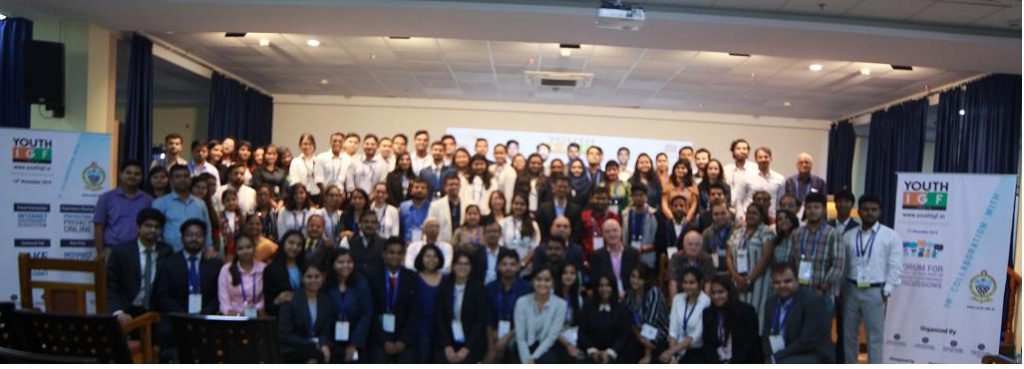The fourth edition of inSIG was held from 15-17 November, in Kolkata, India, with two Day 0 events (the Second Youth IGF India and GFCE Triple-I Workshop). The event was organised through a partnership of four ISOC chapters: New Delhi, Kolkata, Mumbai, and Trivandrum.
50 Fellows from various academic, cultural, regional backgrounds participated in inSIG2019. Through panel discussions, workshops, role-plays and group activities the three-day school covered a myriad of topics related to the internet. The sessions covered fundamental topics like the history, principles, and status of the internet. The hurdles around online safety, human rights, online radicalization, and cybersecurity were extensively examined and many perspectives were brought out which were thought-provoking and ingenious. Status and challenges of Emerging technologies, content regulation, and multilingual internet were also discussed widely and valuable feedback and inputs were provided by the delegates.The report on the discussions can be viewed using this link.
The event was supported and sponsored by NIXI, Facebook, APNIC, ICANN, Internet Society, Neustar, APASA and MediaNama.

Youth IGF India Updates
The second Youth IGF India was organised on 14 November at St. Xavier’s University, Kolkata. Over 100 youth participated in the event including 20 fellows. The event was supported by four ISOC chapters: New Delhi, Kolkata, Mumbai, and Trivandrum, inSIG, UN-IGF, NIXI, MeitY, APNIC, ICANN, Facebook, Neustar Indus Net Technologies and St. Xavier’s University, Kolkata. The day long event comprised of panel discussions, workshops, role-plays and group activities, covering a myriad of topics related to the internet: basics of Internet Governance, privacy, security, names and numbers, engagement in IG space

GFCE Triple I Workshop Update
GFCE Triple I Workshop Update
The Triple-I Workshop, facilitated by the Dutch Ministry of Economic Affairs and Climate, and Maarten Botterman examined mechanisms that would improve the security of the Internet and the trust of its users. The session, which brought together some of the top experts in security with participants from industry, civil society, government organizations and the technical community, examined various topics including open Internet standards such as DNSSEC, TLS, DMARC, DKIM, SPF, DANE and IPv6, and discussed good practices from different parts of the Asia-Pacific Region as well as from outside.

